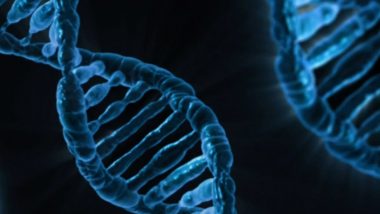Auckland, September 7: Stephanie Aston, a 33-year-old woman from Auckland, New Zealand, has sadly passed away, shedding light on the profound challenges faced by individuals with Ehlers-Danlos Syndrome (EDS), a rare and often misunderstood genetic disorder. Stephanie lost her life on September 1 after a long and public battle with EDS, a condition that affects the body's connective tissues, resulting in a wide range of debilitating symptoms.
EDS is often referred to as an "invisible disease" because those who suffer from it may outwardly appear healthy despite enduring severe symptoms. These symptoms can include severe migraines, joint dislocations, easy bruising, abdominal pain, iron deficiency, fainting, and an abnormally fast heart rate. EDS is a group of inherited disorders caused by gene mutations weakening connective tissues responsible for supporting the skin, bones, blood vessels, and organs. There are at least 13 different types of EDS, each with varying severity. While treatments can help manage symptoms, there is currently no cure. Mystery Brain Disease Strikes in Canada: Cluster of Mysterious Brain Diseases Detected in New Brunswick, Victims Develop Dementia-Like Symptoms, Says Report.
According to multiple reports, Stephanie's journey with EDS began in 2015 when she first experienced these excruciating symptoms. However, her ordeal took a heart-wrenching turn when a doctor dismissed her condition as a product of her imagination, accusing her of faking her debilitating illness. Despite her genuine struggles, she was placed on psychiatric watch, subjected to rectal examinations, and accused of self-harming behaviours. Sadly, Stephanie's experience is not unique. Many individuals with rare and "invisible" illnesses, especially women, face scepticism and misdiagnosis from healthcare professionals. Latest Study Finds New Genetic Mutation Source For Neurodegenerative Diseases.
The dismissal of women's pain and health concerns remains a significant issue in the medical community, leading to delays in appropriate diagnosis and treatment. Stephanie's relentless advocacy and determination led her to seek justice and support others with EDS. In 2017, she co-founded the Ehlers-Danlos Syndromes New Zealand society to provide a platform for patients to share their experiences and advocate for improved healthcare and awareness. Her tragic passing has left a void in the EDS community, with many feeling lost and concerned about their own care.
The outcome for individuals with EDS depends on the specific type they have, but without proper symptom management, the condition can become life-threatening. Kelly McQuinlan, Ehlers-Danlos Syndromes New Zealand's founder, described Stephanie as a "beacon" for the EDS community. Stephanie's legacy lives on through the advocacy efforts of the organization, which aims to bring about systemic change within the healthcare system. Stephanie's story highlights the need for increased awareness, research, and sensitivity to the experiences of individuals with rare and often invisible illnesses.
(The above story first appeared on LatestLY on Sep 07, 2023 01:48 PM IST. For more news and updates on politics, world, sports, entertainment and lifestyle, log on to our website latestly.com).













 Quickly
Quickly


